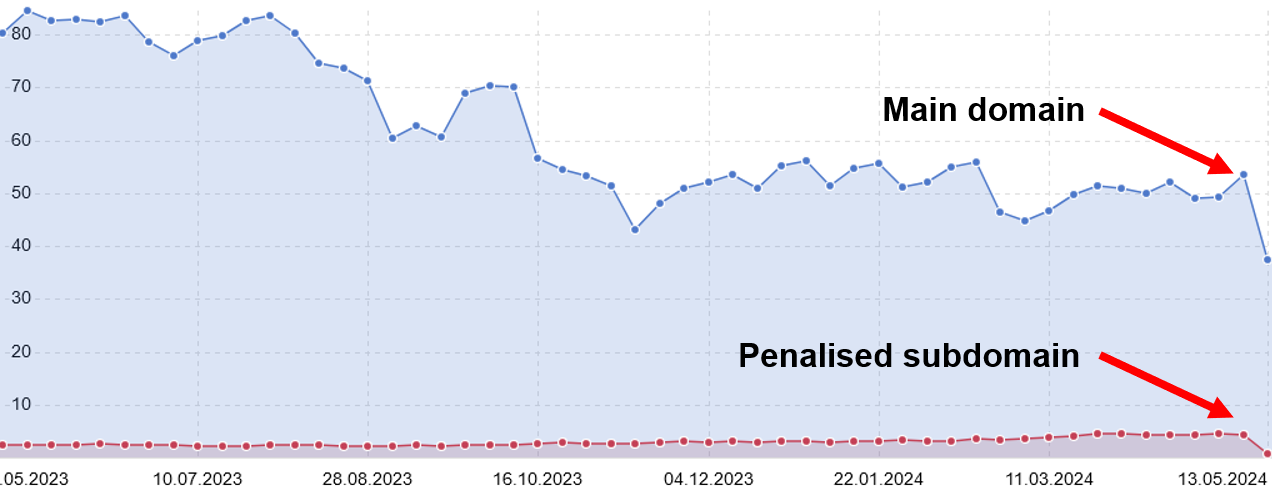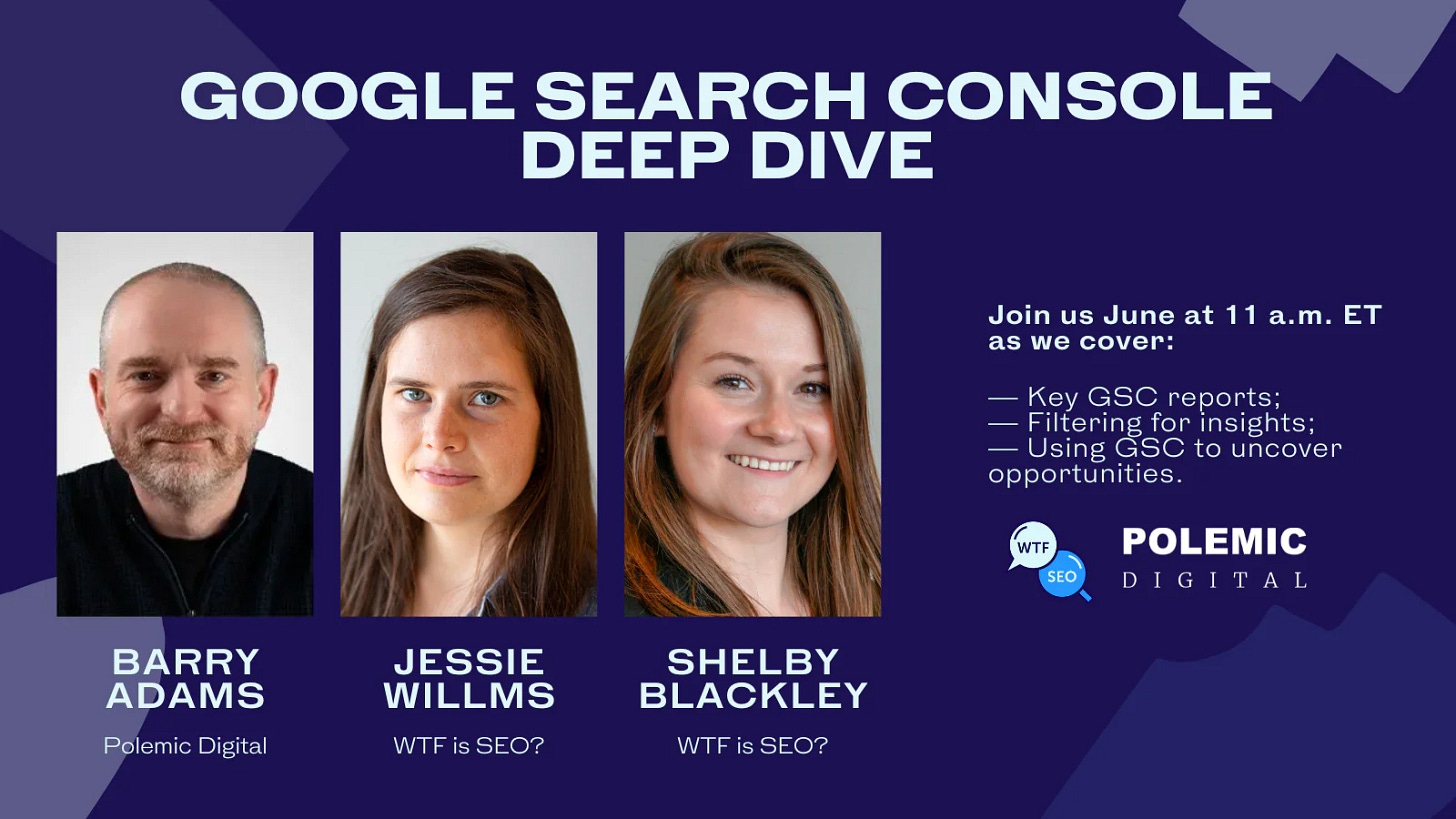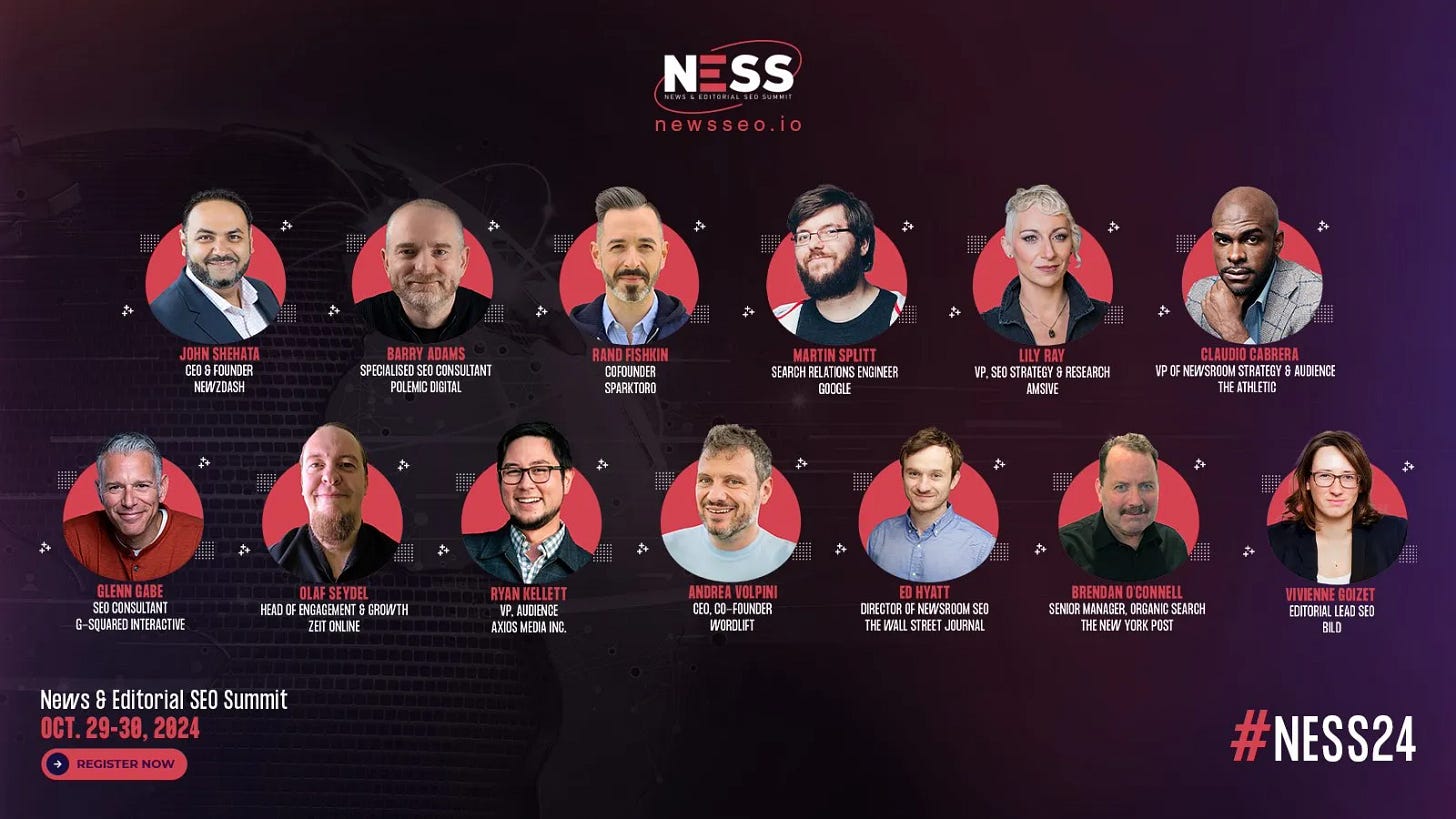Google penalises Site Reputation Abuse, starts rollout of AI Overviews
Immediately following the two-month grace period Google handed out manual penalties like candy at Halloween. Plus, Google I/O showed us the future of search.
In a previous newsletter I wrote about the new spam policies Google has introduced, and specifically about the site reputation abuse policy.
The examples Google provides in its documentation make it explicit what they’re targeting. One in particular stood out:
A news site hosting coupons provided by a third-party with little to no oversight or involvement from the hosting site, and where the main purpose is to manipulate search rankings
Coupons/vouchers/discount codes are a common type of content on many publisher sites, and it was clear this would be in Google’s firing line.
When Google announced their new spam policies, they made the unprecedented decision to allow for a two-month grace period for publishers to mend their ways before the site reputation abuse policy would come into effect.
This is a very unusual approach. I can’t remember a previous instance when Google pre-announced new spam policies clearly and transparently, and then gave sites two months to clean up their act.
It was obvious Google is sending a signal. The most well-known culprits of site reputation abuse (also known as parasite SEO) were big publisher brands. Rather than come down with the penalty hammer straight away, Google wanted to give these big brands the opportunity to comply. This is a privilege most websites don’t receive.
My initial advice was clear: deindex this content if you want to escape a penalty. Most publishers didn’t take any action, calling Google’s bluff.
Manual Actions
May 5th came and went, and we didn’t need to wait long for the penalties started coming in. On May 6th the first notices arrived in Google Search Console:
The resulting loss of visibility in Google’s results showed the scale of the penalties:

I know of at least two dozen websites that have been manually penalised for hosting a coupons subfolder or subdomain.
While these penalties appear highly targeted, with the offending folder or subdomain suffering the brunt of the penalty, I have seen some of the bigger publishers suffer a loss of visibility in SISTRIX that exceeds the loss of visibility of the penalised section:
This shows that the impact may be more far-reaching than just the penalised section.
I’ve also seen some other types of content receiving a penalty, most notably sports betting and gambling content as well as blatant affiliate content.
Some of the penalised content seems to fall in a bit of a grey area, where you could make a case for editorial oversight. Theoretically that should qualify the content for an exemption as listed in Google’s documentation.
But it seems Google has zero chill on this issue and will penalise anything that even remotely fits their description of site reputation abuse.
In light of this, while Google has so far gone after coupons and gambling content, it’s very likely that more manual penalties will follow. I don’t expect other 3rd party content in niches like travel and shopping to be immune. These will also be targeted at some stage.
More importantly, these manual actions are just the beginning. Google has said there will be an ‘algorithmic component’ to the new spam policies, which means a site could be affected by a core algorithm update as well as a manual penalty. And core algorithm updates tend to have site-wide effects.
So I will repeat my initial advice: deindex this 3rd party content. Either remove it from your site entirely, or put a noindex meta tag on it.
I don’t think there is any value in trying to negotiate with Google. I’m sure the providers of this 3rd party content, seeing their business model evaporate, will do whatever they can to keep publishers on board and find a way to skirt around Google penalties.
But in my view, the risk is too great. Keeping this commercial 3rd party content on your site will result in a manual penalty and, more importantly, risks your entire site being massively downgraded in an upcoming core algorithm update.
And as we know, those can be truly devastating.
Are the benefits of this commercial non-news content worth the risk of losing most of your Google traffic? I don’t believe so.
AI Overviews
Yesterday Google held its annual I/O event where they introduce new products and features. The 2024 edition was, unsurprisingly, heavy on AI.
Search is not often featured in Google I/O, as it’s not a particularly sexy part of Google’s offering (despite being the breadwinner). However, this year search was in the spotlight as Google announced a wide rollout of its Search Generative Experience.
It’ll arrive under a different name: AI Overviews. Here is Google’s slick promo video of the new search feature:
Intended for more ‘complex queries’, these AI overviews are meant to help users find quick answers without having to do loads of research themselves. If you want the full details of what AI overviews can do, read Google’s announcement article here.
I’m quite interested in this particular sentence from that article:
“As we expand this experience, we’ll continue to focus on sending valuable traffic to publishers and creators.”
We’ll have to see what that actually means in practice, because right now it looks like Google - having trained its AI on the web’s copyrighted content - will do its best to summarise and replace that content in its own summaries, negating the need for users to visit the originating website.
I suppose it might be good for the user, but it does remove whatever meagre incentives remained for actual experts to create this content in the first place.
On the upside, it looks like SGE (and AI Overviews) will be less prominent in Google’s results. Research from Ziptie.dev shows that over the last few months, the presence of SGE in Google’s results (for users who had it enabled) kept being reduced. Currently the majority of results feature no SGE component at all.

Perhaps Google wasn’t too confident in this initial version of SGE. These new AI Overviews, generated by an updated Gemini model, might be more accurate.
Then again, they might not.
Publisher Center
In other news, Google has removed the ability to add a publication in its Publisher Center. Instead, as part of the algorithmic inclusion process for news websites, a website will automatically get a Publisher Center account when it’s deemed eligible for inclusion in Google News and Top Stories.
The intention is to ‘eliminate confusion’, which I sort of get. Many folks seemed to think that adding a publication in Publisher Center and getting the green ‘Live’ badge indicated the site was approved for Google News and Top Stories.
This was never the case. The Publisher Center setup was purely to control some aspects of how the site would appear in Google News, but it never meant you actually got any visibility in the first place. That was always up to Google’s entirely opaque news inclusion algorithms.
At first I was annoyed at Google for this change, but upon reflection I think it actually makes sense. Now a publication will only get a Publisher Center profile when it’s an approved Google News source. Hopefully this will also serve as a much-needed signal when a site has met the Google News criteria and is deemed an eligible publication.
I wonder how Google will notify a site when a Publisher Center profile has been created for it. Perhaps through Google Search Console?
Speaking of which…
Google Search Console Masterclass
I’m once again teaming up with Jessie Willms and Shelby Blackley from WTF is SEO? for an online masterclass. In this one we’re doing a deep dive into Google Search Console, highlighting the most important reports and data that GSC provides for publishers.
The Masterclass will be held live on Tuesday 11th June 2024, at 11am EST / 3pm BST / 4pm GMT and will last one hour.
In the first half of the call, we will cover:
Reports (including Crawl Stats, CWV, countries and more);
How to filter for insights;
Using GSC to uncover opportunities.
Participants are encouraged to bring questions relevant to their publications. This is an opportunity to get into the weeds on GSC, and get clarity on real-world problems that SEO and audience editors are facing every day.
After the masterclass, participants will receive the initial recording (the presentation in the first half), slides, an actionable tip sheet/checklist, and access to a private Slack channel with Jessie, Shelby and Barry for 60 days following the event to ask relevant follow up questions.
Book your Masterclass ticket here - limited seats available so get in there quick!
SEO for News Meetup in NYC
I’ve got my travel sorted and will be at the SEO for News meetup this coming Monday 20th May in New York. There’s an excellent lineup of speakers and panellists (including yours truly).
There are very few seats remaining for this FREE event, so reserve your spot ASAP and hang out with some of the top minds in news SEO this coming Monday.
NESS 2024
The early bird rate for the 2024 News and Editorial SEO Summit ends on May 31st. If you haven’t yet gotten your ticket to the premiere event on all things SEO for publishers, book yours today.
Miscellanea
Never a dull moment in SEO and publishing.
Official Google Docs:
Interesting Articles:
Google takes lion’s share of growing UK ad market as publishers lose out - Press Gazette
Going deeper on the topics driving the 2024 US presidential election - Chartbeat
Debugging tech journalism - Nieman Journalism Lab
Google to pay up to $6 mln to News Corp for new AI content - Reuters
Why FT may be wrong to license its content for AI training - Press Gazette
Is $412 billion in one quarter a Big Tech monopoly? You tell me... - Future Media
Facebook’s referral traffic for publishers down 50% in 12 months - Press Gazette
News companies are sitting on a “gold mine” during great content shortage, AI model collapse - INMA
OpenAI, Mass Scraper of Copyrighted Work, Claims Copyright Over Subreddit's Logo - 404 Media
Latest in SEO:
What is going on with the Site Reputation abuse policy? - Marie Haynes
Hit by Helpful Content Update? Read this - InLinks
Unpacking Google’s 2024 E-E-A-T Knowledge Graph update - SEL
On-page SEO and UGC for Publishers - Sitebulb
Evergreen-ish: Durable content for news SEO - WTF is SEO?
Google SGE Organic Traffic Impact Divided By Verticals [Data Study] - SEJ
Webinar Recording: SEO for News & Publishing Brands - Sitebulb
That’s it for another edition. As always, thanks for reading and subscribing.







